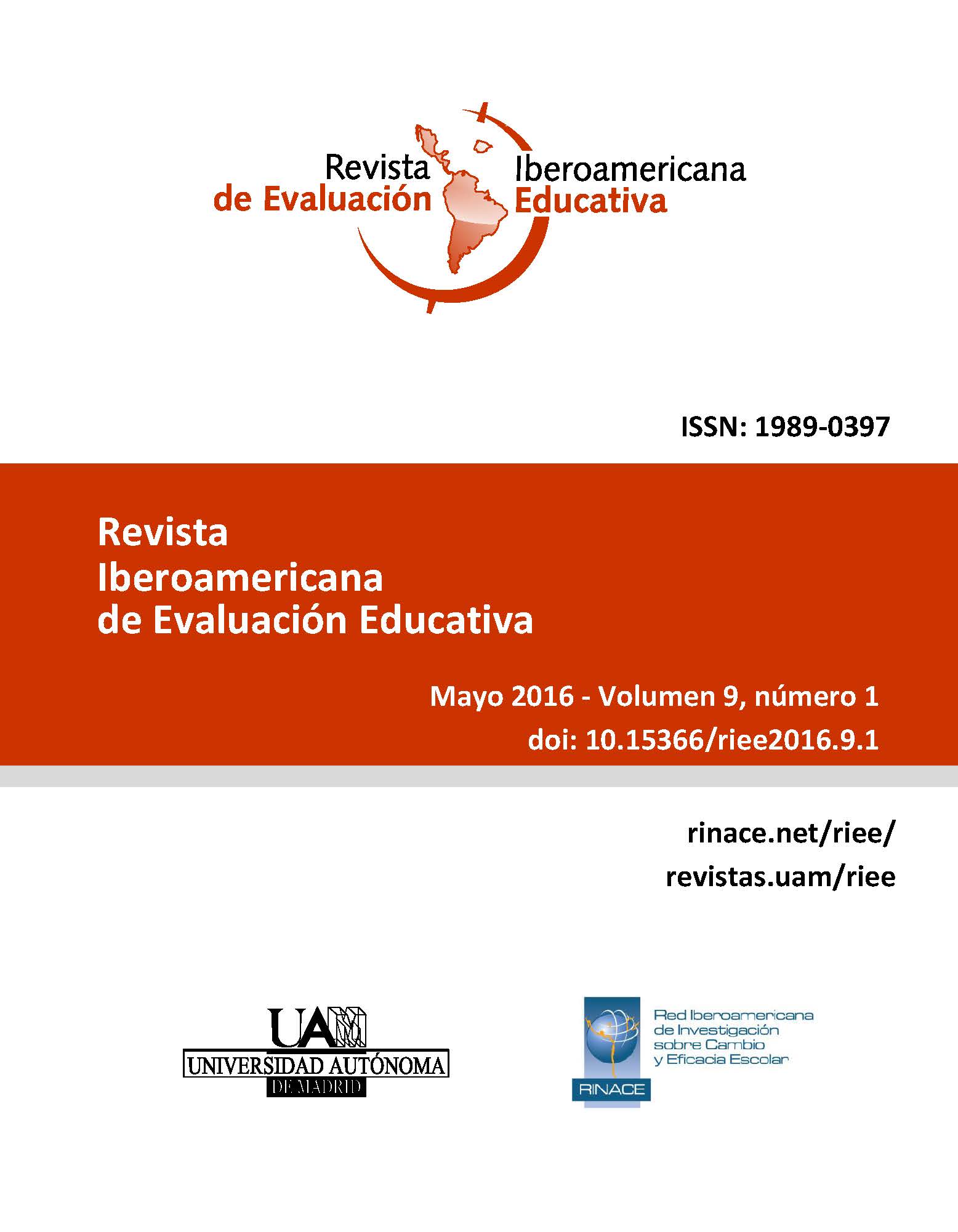Análisis de una Escala para Evaluar la Satisfacción del Profesional Docente en la Enseñanza Primaria
Copyright (c) 2016 Revista Iberoamericana de Evaluación Educativa

This work is licensed under a Creative Commons Attribution-NonCommercial-NoDerivatives 3.0 Unported License.
Abstract
Este trabajo forma parte de un estudio promovido por el grupo de investigación y de innovación pedagógica de la Universidad de Barcelona y el Observatorio Internacional de la Educación de la Profesión Docente. Elaborar una escala de valoración de la satisfacción docente (ESD) es el objetivo de esta investigación, por ello se determina si el instrumento desarrollado y las inferencias realizadas en este cuestionario son válidas. La escala se aplica a una muestra de 215 profesores de primaria en la Comunidad Autónoma de Canarias (Gran Canaria). El cuestionario propuesto por el grupo de FODIP, consta de 18 ítems tipo Likert de 1 a 5. Los resultados muestran que la escala de valoración aportada es válida y fiable, y que su estructura de tres factores (la planificación, la autonomía y el desarrollo profesional) es una alternativa ágil y rápida para conocer el grado de satisfacción del profesorado. Las tres dimensiones de la escala encuentran correlatos similares en modelos anteriores y, aunque como ya señalamos, el número de dimensiones estimado por los distintos investigadores es variado, a juzgar por las referencias, una escala corta y de fácil aplicación puede ayudar a una primera aproximación a la satisfacción docente.
Palabras clave: Satisfacción del profesional docente, Enseñanza primaria, Escala, Planificación, Autonomía, Desarrollo profesional.
This work is part of a study promoted by the Group of research and teaching innovation of the University of Barcelona and the international Observatory of the education of the profession teaching. To elaborate a scale of valuation of the educational satisfaction (ESD) is the aim of this investigation, for it decides if the developed instrument and the inferences that realized in this questionnaire are valid. The scale is applied to a sample of 215 primary teachers in the autonomous community of Canary Islands (Gran Canaria). The questionnaire to assess the satisfaction of professional teachers in primary education proposed by the Group of FODIP, it consists of 18 items Likert-type 1 to 5. The results show that the scale of valuation provided is valid and reliable, and that its structure of three factors (planning, autonomy and professional development) is an agile and fast alternative to knowing the degree of satisfaction of the teaching staff. The three dimensions of the scale are similar correlates in previous models and, although as already noted, the number of dimensions estimated by different researchers is varied, judging by the references, a scale short and easy application can help a first approach to teacher satisfaction.
Keywords: Satisfaction of the educational professional, Elementary education, Scale, Planning, Autonomy, Professional development.
